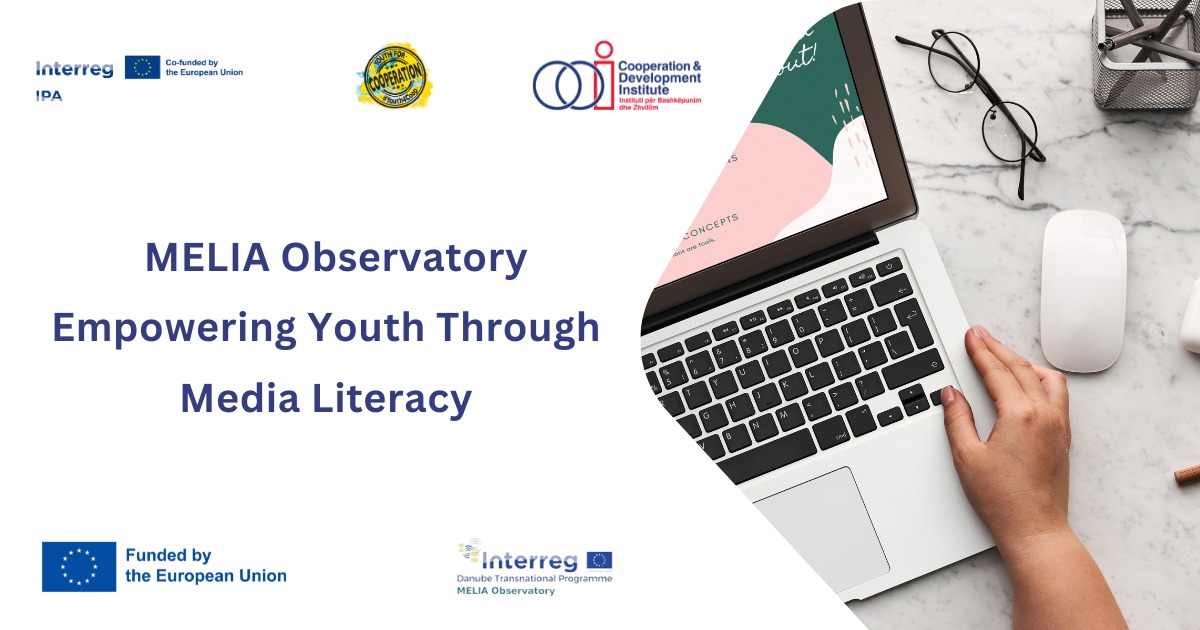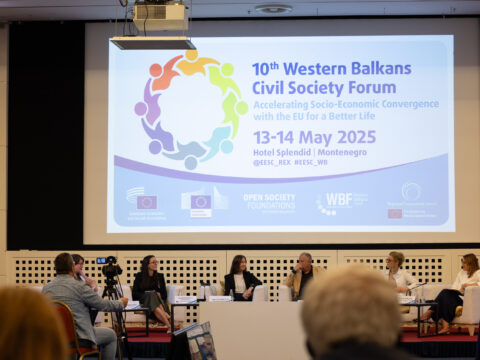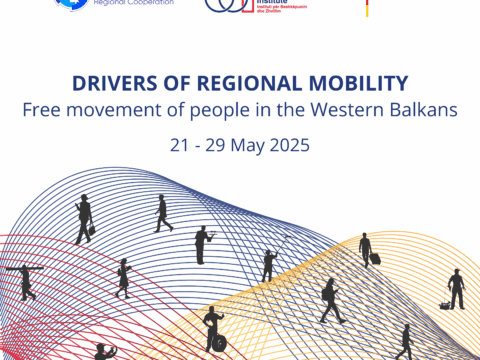In today’s interconnected world, empowering young people to navigate the digital landscape, critically analyze information, and actively participate in democratic processes is of utmost importance.
According to the Alternative report on the position and needs of young people that KOMS did in 2022, only 37% of youth in Serbia visit news websites and applications, while most of them say they use social media every day. On the other hand, as much as 76% of youth said they often encountered fake news. This data clearly shows the need for youth to be educated on media literacy.
The MELIA Observatory project, co-funded by the INTERREG Danube program and initiated by “Petrovaradin medija,” stands as a remarkable example of how INTERREG projects can engage and support youth in Serbia and the Western Balkans region. By promoting media literacy and active citizenship, MELIA Observatory equips young individuals with the necessary tools to combat misinformation, strengthen their knowledge, and drive positive change in their communities.
At the core of the MELIA Observatory project lies the recognition of citizen competence as a crucial element for sustainable democracy. Mrs. Bojana Jakimov, the project manager, underscores the need for active political participation among the youth in the Eastern Danube region. By fostering media literacy, MELIA Observatory aims to address the apathy towards political engagement and equip young individuals with the skills to critically analyze social reality and combat negative media influences such as hate speech and fake news.
The project has taken an innovative approach to engage youth through interactive learning experiences. Workshops, which reached approximately 60 local participants, and a broader regional impact of around 250 individuals have served as platforms for discussion and knowledge exchange. MELIA Observatory leveraged formal education institutions to reach young people effectively, presenting the project’s objectives and benefits to students and teachers. Utilizing relatable examples from social media, the project’s interactive materials have captivated and held the attention of participants, facilitating a deeper understanding of media literacy concepts.
To ensure comprehensive media literacy education, MELIA Observatory has covered a range of essential topics. The project has produced handbooks, presentations, and pamphlets addressing marketing and advertising, social network behavior, news credibility, politics, manipulation, propaganda, and critical thinking. Importantly, the project has created a safe space for young individuals to express their opinions, ask questions, and engage in dialogue. Mrs. Jakimov emphasizes that the project team encouraged trial and error, recognizing that making mistakes is an integral part of the learning process. The workshops have witnessed the active participation of youth, who have not only provided valuable insights but have also highlighted the importance of integrating media literacy into formal education curricula and expressed a desire to start an initiative for it.
With its online accessibility and continuous work over a span of two years, MELIA Observatory has reached thousands of individuals, extending its impact beyond the workshop participants. The project has successfully instilled a sense of media literacy among young people, enabling them to discern between reliable and false information. Moreover, it has fostered a spirit of active citizenship and encouraged the youth to be agents of positive change within their communities.
The MELIA Observatory project serves as an inspiring model for engaging and empowering youth in Serbia and the Western Balkans region. By equipping young individuals with media literacy skills and fostering active citizenship, the project has paved the way for a more informed, critically thinking, and engaged generation. As the digital landscape continues to evolve, initiatives like MELIA Observatory play a pivotal role in shaping young minds, ensuring their ability to navigate complex media environments and contribute positively to society.
Interreg programs can offer support in several youth areas to bring about tangible change in Serbia. They can support initiatives that promote cross-border collaboration, since youth in different areas face challenges that transcend national borders, such as unemployment, social exclusion, and limited access to education. INTERREG programs can facilitate cross-border collaboration by bringing together different countries to jointly address these issues. Another area they can support is social inclusion. Many young people face discrimination and social exclusion, so they can help promote social inclusion by facilitating cultural exchange, intercultural dialogue, and collaborative projects that foster mutual understanding Finally, INTERREG programs can help enhance digital skills. In an increasingly digital world, they can enhance digital literacy by supporting digitalization initiatives, training and technology hubs.






